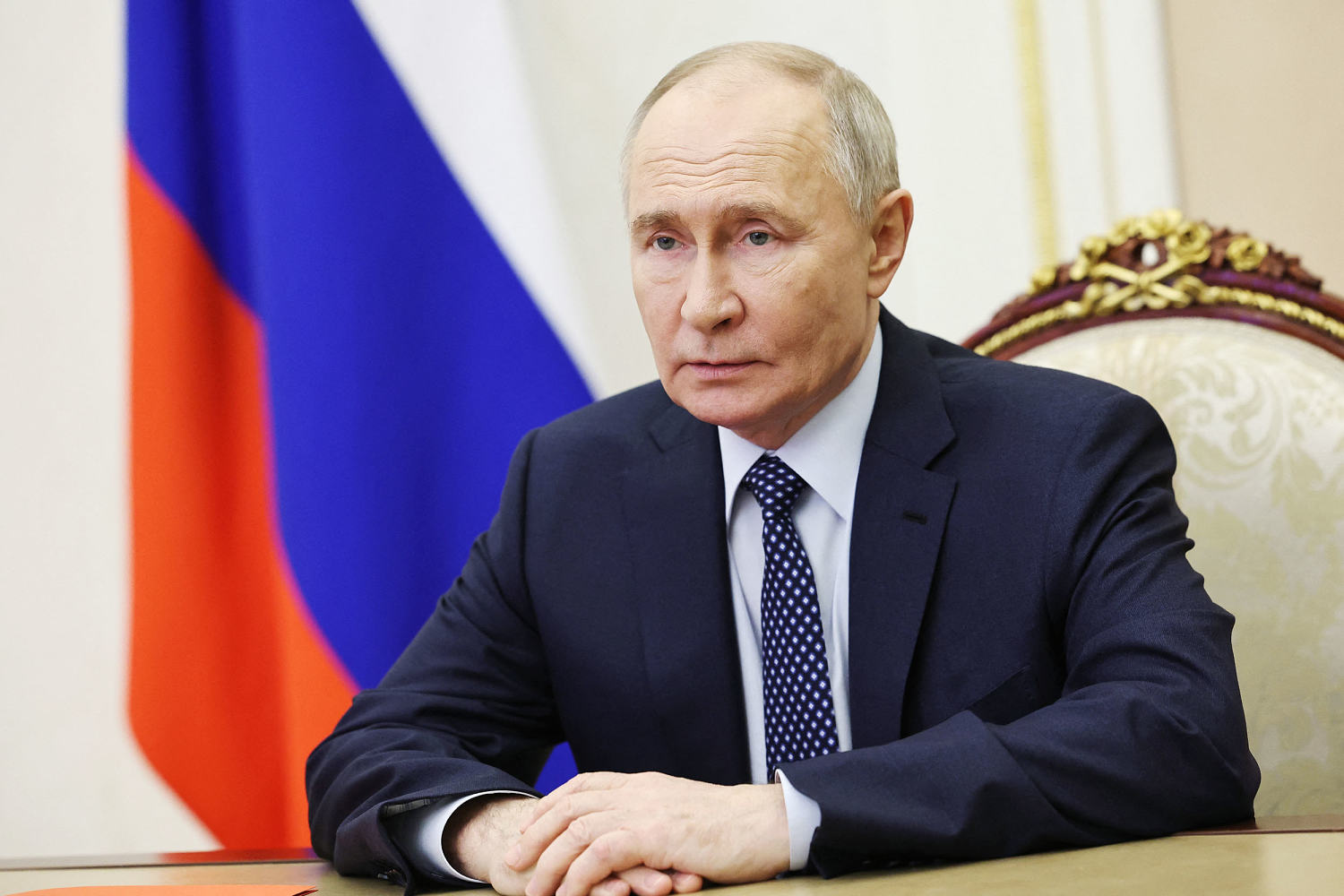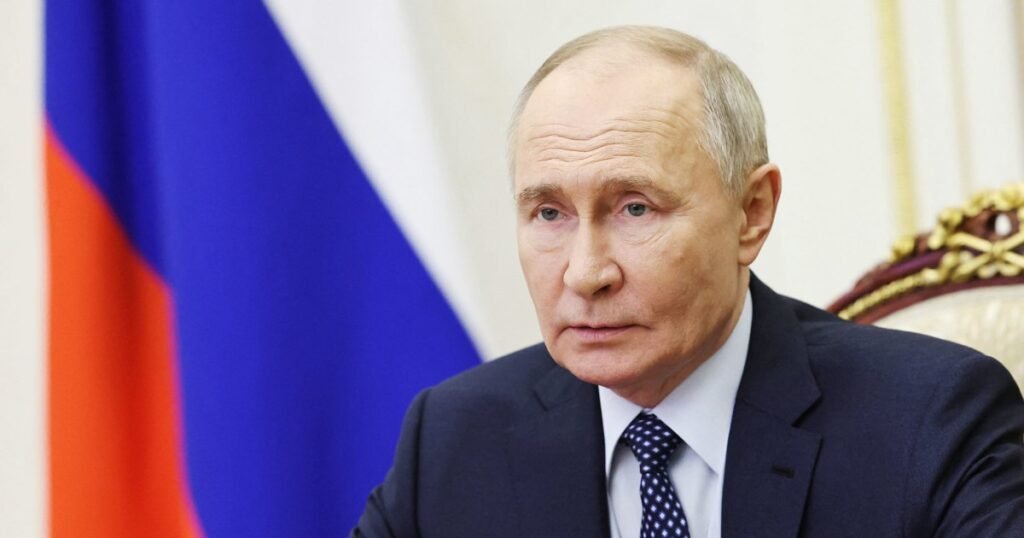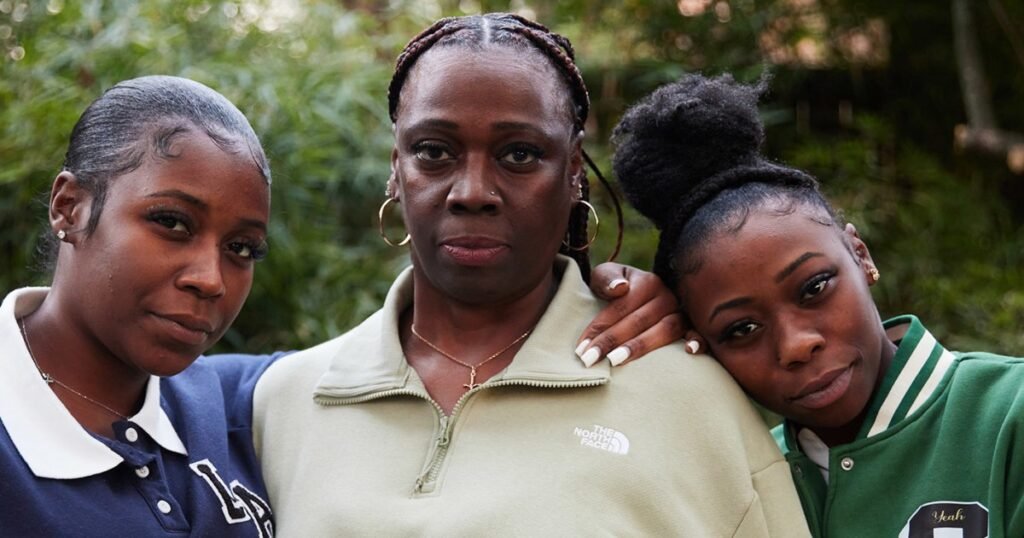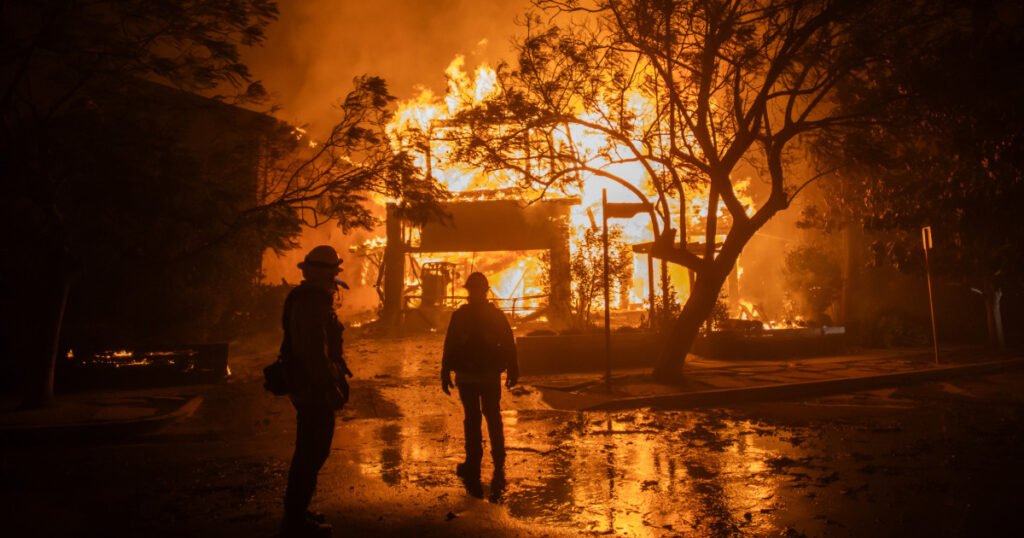
WASHINGTON — The bromance between Presidents Donald Trump and Vladimir Putin has noticeably fizzled in the new term, though Trump has yet to reveal the extent to which he’ll pressure Russia to end its grinding war with Ukraine.
Since taking office, Trump has dropped talk of Putin’s strategic “genius” and “savvy.” In a conspicuous rhetorical shift, Trump has instead been warning that the Russian president he once called “very smart” is leading his country to ruin by prolonging the war.
“He [Putin] should make a deal,” Trump told reporters in the Oval Office on his first day back in the White House. “I think he’s destroying Russia by not making a deal. I think Russia is going to be in big trouble.”
The rationale behind the frostier tone is simple enough. Trump promised during the campaign to end the fighting within 24 hours of taking office, if not sooner. That deadline has passed, meaning the clock is ticking on Trump’s vow to stop a costly, destructive war that began nearly three years ago when Russia invaded its democratic neighbor.
Trump needs both Putin and his Ukrainian counterpart, Volodymyr Zelenskyy, to come to the table and negotiate a peace deal, which for Russia means abandoning any hope of swallowing up Ukraine in its entirety.
Ukraine is prepared to bargain, Trump told the World Economic Forum three days after his inauguration. And Russia?
“Well, you’re going to have to ask Russia,” he said.
“Having listened to Trump talk about Putin for almost a decade now, this is the most critical stuff he’s ever said,” Michael McFaul, a former U.S. ambassador to Russia in the Obama administration, said in an interview.
The Russian embassy did not immediately return a request for comment.
Ways to pressure Putin
Words alone won’t compel Putin to give up the quest to subdue Ukraine, national security experts said. For that to happen, Trump will need to demonstrate to Putin that it’s fruitless to continue fighting, they said.
That will take some doing. Putin remains uninterested in peace talks as long as Russian troops continue to gain ground in Ukraine’s east, albeit at a slow pace, and while Ukrainian forces hold seized territory in the Kursk region inside Russia, according to John Herbst, a former U.S. ambassador to Ukraine, and other former officials.
“He [Putin] doesn’t want to negotiate now, because his troops are moving forward,” Herbst said. “He wants to put more Ukrainian territory in his pocket when negotiations begin.”
Sergii Leshchenko, an adviser to Zelenskyy’s chief of staff, told NBC News in an interview that “Ukraine is open for negotiation, but it should be a negotiation. Not an ultimatum by Russia. In this case, Ukraine demonstrated a will to negotiate. Russia does not.”
It’s unclear how far Trump will go in confronting Russia over Ukraine and whether he would be ready to ratchet up military assistance — including long-range missiles — to Kyiv.
Trump has at his disposal a variety of tools that might make Putin more inclined to stop fighting. The question is, will he use them?
The Trump administration briefly delayed the shipment of weapons to Ukraine last week but it was unclear exactly why, according to a source with knowledge of the matter. The shipments have since resumed.
Depriving Ukraine of weapons would be a severe blow to Kyiv’s war effort against its much larger neighbor.
Asked about the pause, the White House’s National Security Council pointed to Trump’s comments about Ukraine during an Oval Office appearance on Monday.
There, Trump told reporters that he would be open to linking financial assistance to something the U.S. wants in return: Ukraine’s rare earth minerals.
“We’re putting in hundreds of billions of dollars,” Trump said. “They [the Ukrainians] have great rare earth. And I want security of the rare earth, and they’re willing to do it.”
Brian Hughes, a spokesperson for the White House’s National Security Council, said in a statement: “As President Trump shared yesterday, the United States needs to recoup any money it spends or has spent on Ukraine aid. The discussions over the weekend centered around how best to ensure that repayment, and a timetable has yet to be established.”
Split in the Trump administration
Trump’s advisers and Cabinet members are split over how much pressure to bring to bear, with national security adviser Mike Waltz and Ukraine envoy Keith Kellogg wanting to use American leverage to prod Putin to stand down, according to former U.S. and Ukrainian officials and a source close to the Kyiv government.
Others favor cutting back the billions of dollars in assistance the U.S. gave to Ukraine in the Biden administration as a way of forcing a swift end to the conflict. Critics of that approach say it would effectively disarm Ukraine and thus amount to a capitulation to Russia.
Before becoming vice president, then-Sen. JD Vance was a fierce skeptic of the money the Biden administration gave Ukraine.
“Why are spending $130 billion on Ukraine when we can’t even pay our own bills at home?” Vance said in one speech. He also called Ukraine’s government “the most corrupt” in Europe and possibly the world.
Kellogg told NBC News in a statement, “The president’s national security team is in sync.”
“The president will use, as necessary, all levers of American strength to enable a conclusion to the carnage of the past three years,” Kellogg added.
A spokesperson for Vance declined comment Tuesday on his position on U.S. aid to Ukraine.
Trump has laid out a few ideas for assisting Ukraine while the war continues.
In a social media post two days after his swearing-in, he warned that he would slap Russia with tariffs, sanctions and taxes on the sale of Russian goods to the U.S. and other countries if Putin didn’t negotiate an end to the war.
A problem with that approach is that U.S. trade with Russia has fallen sharply, making tariffs less of a cudgel. Last year, the U.S. imported about $2.9 billion worth of goods from Russia, according to the U.S. Census Bureau. By contrast, in 2021, before Russia’s invasion of Ukraine, the figure was nearly $30 billion.
“It’s a total red herring,” a former Biden administration national security official said of Trump’s tariff threat.
“We’ve totally disconnected the U.S. economy from the Russian economy,” the former official added, speaking on condition of anonymity to talk freely. “So, our ability to hurt Russia with tariffs is marginal.”
Another option would be for Trump to use Russia’s own frozen assets, as opposed to U.S. tax dollars, to continue replenishing Ukraine supplies and weaponry.
William Taylor, a former U.S. ambassador to Ukraine, said that the $300 billion in Russian reserves sitting in European and U.S. banks “would go a long way to provide weapons and financial support to Ukraine.”
“What Trump could do is pressure the Europeans to seize those reserves and put them into an account for the Ukrainians and allow the Ukrainians to use that money to buy weapons from the U.S. and continue to operate their government,” Taylor said in an interview.
“President Trump knows that the Russian economy is fragile and vulnerable to further sanctions. And thus, he knows that he has leverage on Putin,” he added.
A fear among Ukraine’s supporters was that Trump would abandon the country upon returning to office. The warmth he had shown Putin over the years suggested he might bring about a settlement favorable to Russia, they worried.
During a debate between Trump and then-Vice President Kamala Harris last year, Trump did not say whether he wanted Ukraine to win the war.
But now that he’s in office, some who’d questioned Trump could be a fair broker have been heartened to see that, at least, his team isn’t selling out Ukraine.
“I think he [Trump] has started to realize how hard resolving this issue is and that Russia is not going to be constructive unless we apply more pressure,” a U.S. official involved in Ukraine and Russia policy said in an interview, speaking on condition of anonymity to talk freely.
“One reason Trump’s rhetoric has evolved is the switch from campaign to governing mode. The obstacle to peace is not Ukraine. I think that’s sort of dawning on him, and it’s also dawning on him how bad it would be politically, if nothing else, and strategically, if this f—– up.”
Source link



